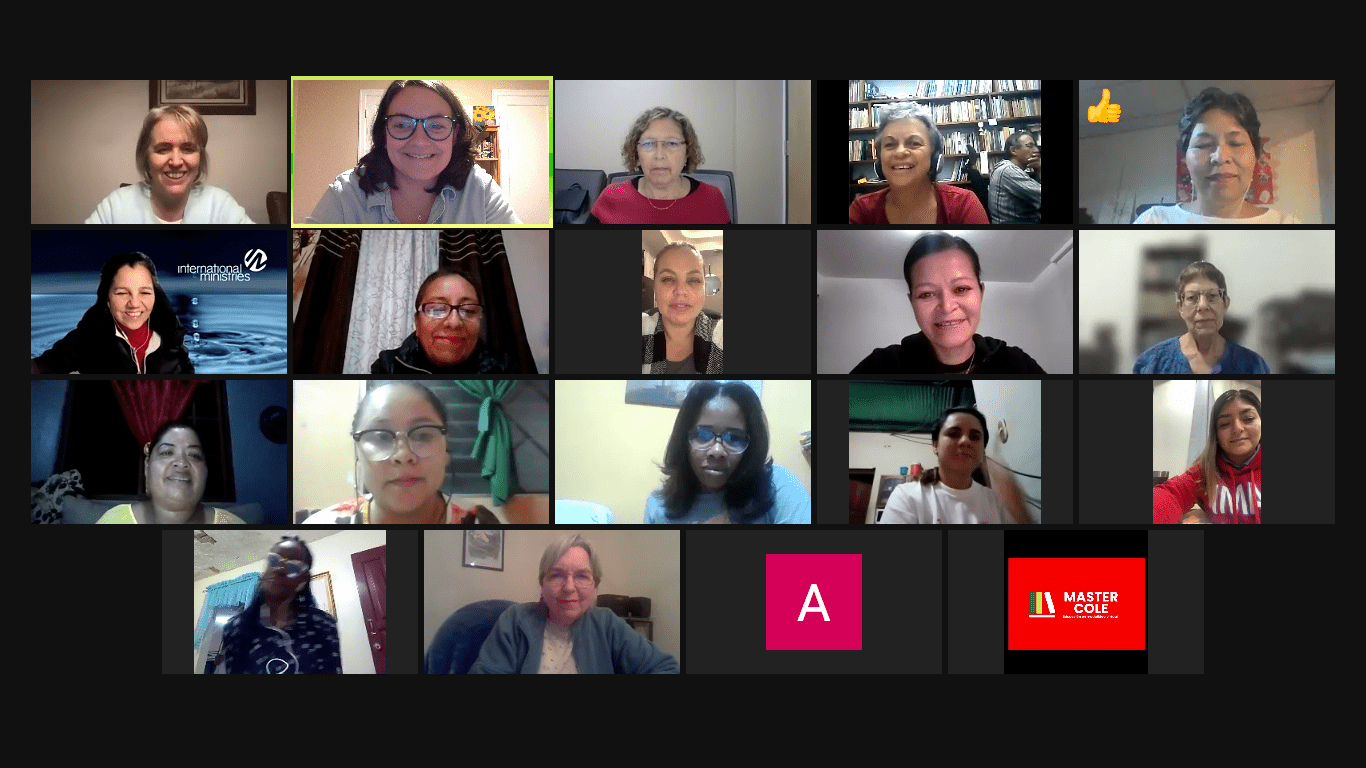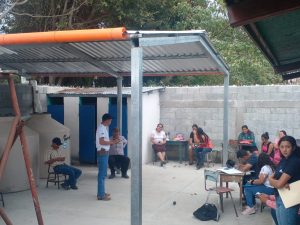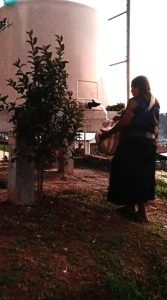

Community leaders training neighbor community and installing rainwater system.

School in Chiapas, Mexico with water supplied by rainwater harvesting.
The Talita Cumi Girls’ Clubs are currently launching in eight countries!
In January, Barb completed training nineteen program directors in:
• the Dominican Republic
• Nicaragua
• El Salvador
• Costa Rica
• México
• Bolivia
• Ecuador, and
• the Texas-Mexico border region.
The program directors now begin training the mentors of each club, usually two mature Christian women in the local church, with monthly meetings for support and learning to evaluate the Clubs’ progress.
Costa Rica and the Dominican Republic just completed their trainings of mentors last week. Texas and Ecuador are beginning this week.
All the Clubs will be up and running in March!
A gift from The Rocky Mountains Region of American Baptist Churches provides nutrition support for all the Clubs in each country. Thank you to Executive Minister Steve Van Ostran for offering this generous partnership!
The training Barb provided the program directors, which they in turn are presenting to the mentors, consisted of twelve hours, covering:
• children’s rights and security
• implementing the program
• program evaluation
(One of the most important elements of Girls’ Clubs is ongoing evaluation. The most effective evaluators are those who are implementing the program locally. This way, each Girls’ Club can continually evolve to meet local needs and contexts.)
Barb appreciates the support in this training on some topics from:
• IM colleague Sarah Matos in Bolivia, on creativity,
• Dr. Nancy Duarte, our psychologist friend from Chile, now teaching at Wheaton College, gave a workshop on mentoring,
• Ana Luisa Castro in Nicaragua, spoke on children’s rights, and
• Laura Boltonado in Nicaragua presented strategies to improve reading comprehension.
“Write the vision”: Talita Cumi in practice
The mission of International Ministries is “to work cross-culturally to invite people into the discipleship of Christ and to proclaim in word and action the kingdom of God and His righteousness, peace, and abundant life for all creation.”
Talita Cumi follows this mission by extending to the most vulnerable girls a vision for the future that will help them navigate everyday challenges and become agents of change in society. The Clubs are small “laboratories of life” where each girl gains skills that she will carry with her into adulthood.
Churches gain a tool for ministry to their communities, calling and equipping women into effective service. The women thrive in this program as much as the girls, as they find their place to care, contribute, connect, and become competent mentors.
Talita Cumi Girls’ Clubs teach the virtues of faith, hope, love, courage, moderation, justice, and wisdom. The program combines mentoring relationships, learning activities, and service opportunities.
THE WATER FOR ALL PROJECT
“Make it plain”: Why rainwater harvesting?
The Water for All project currently in progress with RECONPAZ (Continental Christian Network for Peace) is empowering people to be stewards of their own water sources.
“Watershed discipleship” is what theologian Ched Myers aptly calls it.
In rural communities throughout Latin America, unregulated mining operations and extensive extraction of water by wells create unsafe arsenic levels in groundwater.
As usual, it is the poor who suffer, feeling like the water is being sold out from under them. People are reduced to relying on the government to truck in rations of water, or they must also carry in water themselves from distant sources.
Rainwater harvesting is not going to be the only solution. But until just and sustainable solutions and laws are in force, rainwater harvesting gives people more autonomy and self-sufficiency in the provision of water.
It’s good stewardship, too. In regions that get more annual rainfall than, say, Seattle, too much useable rainwater pours off roofs and heads straight to the sea, without being collected in tanks or even allowed to recharge aquifers. A typical household can supply a substantial portion of their water needs with stored rainwater.
“That the one who reads it may run”: A Guatemalan village teaches the next village how to use rainwater harvesting.
After the community leaders in Volcancito, Guatemala completed the rainwater project for the community school, people in the village and surrounding areas began copying that system and improvising systems for their homes.
Keep in mind, this is the first time they have had water at the school that they haven’t had to carry in by themselves.
The team that designed and installed the rainwater system in the school was so happy they took the idea to the neighboring community of Bejucal and their school.
With all the materials and design methods Dwight had shared with them in Zoom calls and e-mails, they showed Bejucal how to set up a rainwater harvesting system for their school. And the neighbors are copying it and improvising.
We were able to raise additional funds to finance that project from generous donors in our MPN. And now, our same friends and partners from Volcancito have run with this vision to the next village, Hisote.
The Water for All project is made possible by the One Great Hour of Sharing offering. The seed of this great vision is planted and flourishing.
The challenge now is to make the project sustainable, as a faith-based social enterprise, or by convincing governments to see the merits of rainwater harvesting.
Chiapas, Mexico
Another demonstration rainwater harvesting system was completed recently for a school in Chamula. Eleazar Encino is the coordinator of that project and a partner in Baptist work in that region.
He says that during the dry season, two days a week are dedicated to getting water and transporting it to the school. The water will be used mainly for the kitchen and cleaning.
Prayer requests
• For all the girls starting in their own clubs next month. Because of Covid restrictions many are behind in school, with undeveloped reading skills and social isolation.
• For all the mentors, about to enter life-changing relationships and a sacred calling to be companions in Christ with vulnerable girls.
• For Dwight, considering the advisability and feasibility of frequent travel to Central America this year.